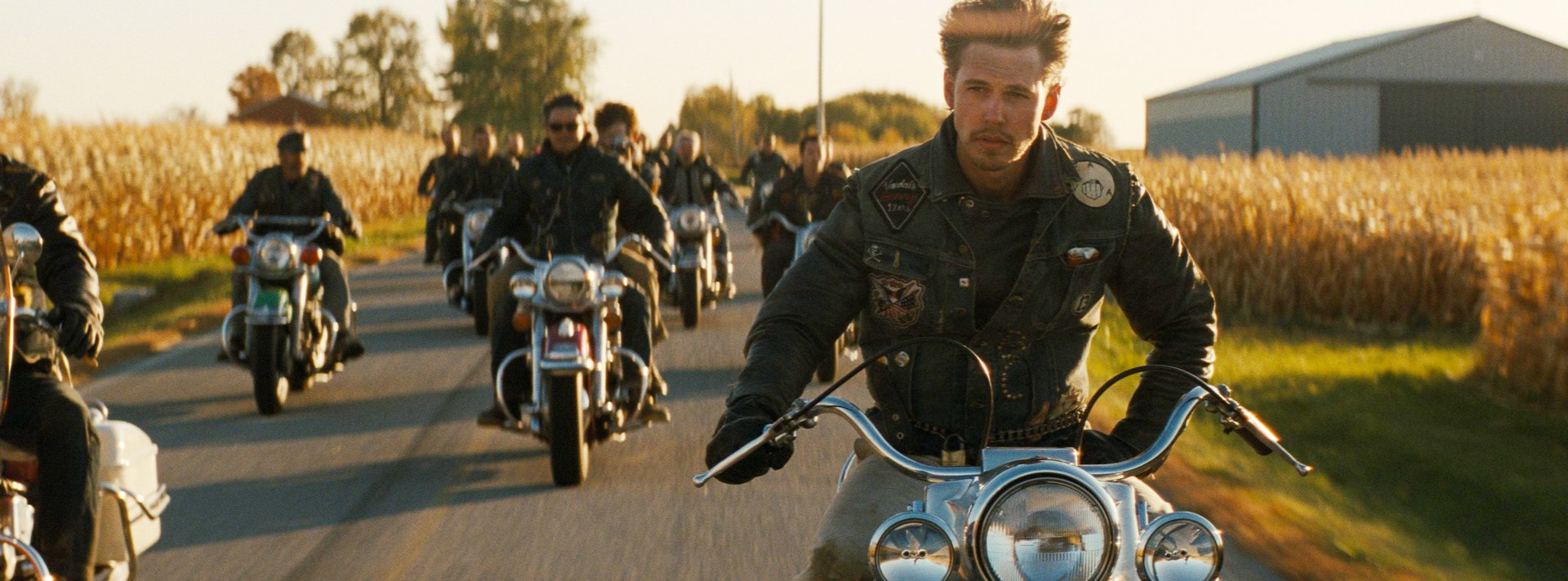The Bikeriders
 for language throughout, violence, some drug use and brief sexuality.
for language throughout, violence, some drug use and brief sexuality.
Reviewed by:Jim O'Neill
CONTRIBUTOR
| Moral Rating: | Very Offensive |
| Moviemaking Quality: |
|
| Primary Audience: | Adults |
| Genre: | Crime Drama Adaptation |
| Length: | 1 hr. 55 min. |
| Year of Release: | 2024 |
| USA Release: |
June 21, 2024 (wide release) DVD: August 13, 2024 |


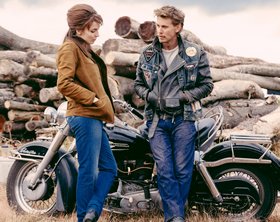
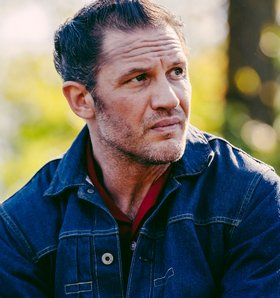


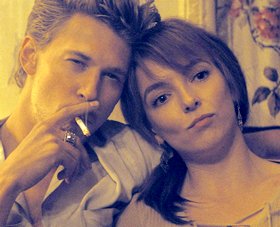
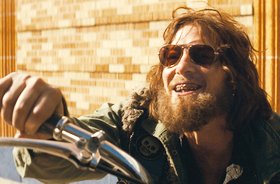
Setting: 1968 America in greater Chicago
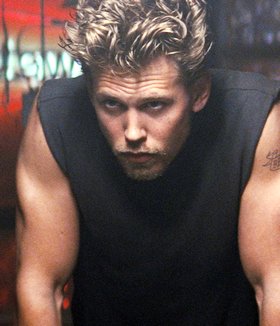
Inspired by the 1967 photo-book of the same name by Danny Lyon depicting the lives of the Outlaws MC, a motorcycle club founded in McCook, Illinois (Chicago area)
Living in a rented apartment in Woodlawn, Chicago, Lyon followed the Chicago chapter of the Outlaws Motorcycle Club in an “attempt to record and glorify the life of the American bikerider.” He is best known as a Leftist civil right movmement photographer.
Life in an outlaw gang biker culture
How can I know what is RIGHT or WRONG?
How can I DISCERN whether a particular activity is wrong? Answer
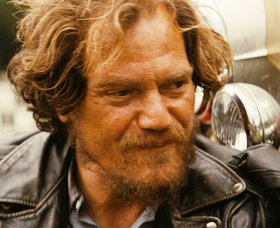
Criminals, gangsters
What is SIN AND WICKEDNESS? Answer
Learn about spiritual darkness versus light
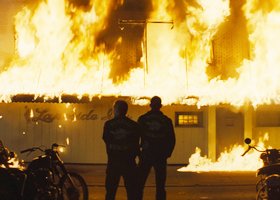
Dangerous underworld of violence
Seeking revenge
FILM VIOLENCE—How does viewing violence in movies affect families? Answer
| Featuring |
Austin Butler … Benny Jodie Comer … Kathy Tom Hardy … Johnny Michael Shannon … Zipco Mike Faist … Danny Boyd Holbrook … Cal Norman Reedus … Funny Sonny Damon Herriman … Brucie Beau Knapp … Wahoo Emory Cohen … Cockroach Karl Glusman … Corky Happy Anderson … Big Jack Paul Sparks … Gary Rogue Leader Toby Wallace … The Kid See all » |
| Director |
Jeff Nichols — “Take Shelter” (2011), “Mud” (2013), “Midnight Special” (2016) |
| Producer |
Focus Features Regency Enterprises See all » |
| Distributor |
“The heart of man plans his way, but the Lord establishes his steps.” —Proverbs 16:9
“What’s the use you learning to do right when it’s troublesome to do right and ain’t no trouble to do wrong, and the wages is just the same?” —Mark Twain, “The Adventures of Huckleberry Finn”
Jeff Nichols has written and directed several films about rural America. His most recent work, “The Bikeriders,” has the same displaced community feeling and forgotten boondock aura as his earlier films, “Loving” and “Mud,” but those works were soft in tone and muted in volume. They were also quite moving. His new movie has its quiet moments, but it is mostly rumbling, loud and harsh. Whereas those movies hummed, and stirred the heart, “The Bikeriders” roars, aiming for the ultimate wheelie while landing on its head with a thud.
Nichols bases his story on a photo-book of the same name published in 1968 by American photographer Danny Lyon. Despite being a series of stills depicting the lives of members of a Chicago motorcycle club called “The Outlaws,” I got a sense of movement, journey and purpose when I flipped through the pages of the book. Unfortunately, Nichol’s film fails to capture any of those things. His is a much more romanticized version of the biker life that feels over-crafted, muffled and, at times, a bit dainty.
He does reveal how a motorcycle gang has a dark side, sometimes a very dark one, but he too often shies away from the gritty realism of Lyon’s pictures and his graphic verbal descriptions of the time he spent with the Outlaws. Lyons, who seems to have seen, and shot, just about everything along America’s back roads, once wrote how he watched one of the Outlaw members use a Nazi flag as a picnic rug. Nichols depicts the violence that erupts from disorder and chaos, but his bikers are an inward-looking, contemplative lot, the kind who would lay their grub on Williams and Sonoma tablecloths and re-cycle their beer cans.
This biker story takes place in 1968. A Midwestern motorcycle club called The Vandals is headed up by Johnny, played by Tom Hardy in a performance that is an odd imitation of Marlon Brando’s Johnny in the 1953 film, “The Wild One.” Hardy always had an outlaw quality, even when he’s played the good guy, an aura that made him as scary as he was vulnerable. Granted, his character gets the idea for starting a motorcycle gang when he sees the Brando film on television and is captivated by Brando’s rebelliousness and nonchalance (“What are you rebelling against?” “Whaddya got?”), but it’s a mystery as to why Hardy stops shy of creating his own persona for this film. It’s a hack performance, a throw-away, one of Hardy’s worst.
Johnny is grooming Benny (Austin Butler) to eventually take over as head of the Vandals, but complications ensue when small town girl, Kathy (Jodie Comer), comes on the scene, captures Benny’s heart, and struggles to tame him.
Butler is even more adrift than Hardy; he can’t capture the shaky balance between Benny’s needs for the domestic and for the open road, both of which tug at him in ways that are never fully explained. He is both impulsive to a dangerous degree and wavering to a stultifying one. His long and angular face is interesting, sometimes compelling, but it’s a little too doom-laden, more Boris Karloff than James Dean. Butler may convey a certain outsider allure, but he lacks Dean’s baby-faced pathos and stinging stare. He might have fared better doing another Elvis impersonation, something we know he is good at, and something that would be fun to watch. I wouldn’t mind seeing a copy of Presley’s Charlie Rogers in “Roustabout,” a movie that was made when the Elvis was past his prime, and revealed how a true star can project iconic status, even in fake leather on top of an over-polished motorcycle.
Jodie Comer serves more as narrator than as actual character, relating her observations of the travails of the Vandals to the Danny Lyon character played more as a cipher than an investigative reporter by Mike Faist. I can’t quite make out Comer’s accent. She seems to be going for something Midwestern, but it comes out more Brooklyn, as if she watched “Saturday Night Fever” a hundred times to learn how people on the outskirts of elite society speak. The twang in her speech, which too often comes across like plucking on an untuned guitar string, does not reach the wistful longing and the haunting cadence that a narrator’s voice (Linda Manz in “Days of Heaven,” Sissy Spacek in “Badlands”) needs.
Kathy is a contradiction; she’s turned off by the rough and tumble walk and talk of the Vandals but is turned in the other direction by Benny’s bad-boy allure. She marries him soon after they meet, and they set out on a marital journey that has as many hazards as an unpaved back road.
Kathy has hopes that “I could change him,” and he would “get over it.” Yes, that always works. She is the masochistic nurturer type made emblematic, and human, by Gloria Grahame in noir films and Mildred Dunnock in social dramas of the 1950s.
Kathy and Benny take turns at the marital steering wheel, both understanding the threat that male bonding in a motorcycle gang can have on a marriage, but also realizing that male friendship is essential to male development (something we learn from reading about the bond between David and Jonathan in the book of Samuel). Female friendship is just as important, but unfortunately, becomes a theme left mostly unexplored in the film.
I wish the scene in the laundromat where Kathy and the other biker wives and girlfriends rule a realm of their own, one where they can speak freely, and plan their own strategies was played up more. It would have been a welcome counterpoint to the many scenes, often maudlin and rife with self-pity, in male bars and biker campgrounds.
The Vandals consist of a group of misfits (more weirdo than eccentric) whose names, at least, are fitting: Zipco (Michael Shannon), Cockroach (Emory Cohen), Brucie (Damon Herriman) and Funny Sunny (Norman Reedus). There is the usual shifting of loyalties, battles with the law, rabble-rousing with town locals that lead to violent confrontations—a gruesome and graphic leg wounding is particularly hard to watch as are the fistfights, ones in which biting is prominent—and crusades to avenge injuries, slights, and betrayals. There is no real focus or clarity, so the revenge segments of the plot misfire, and too often go nowhere.
For we know him who said, “It is mine to avenge. I will repay,” and again, “The Lord will judge his people.” —Hebrews 10:30
“Do not repay evil with evil or insult with insult. On the contrary, repay evil with blessing, because to this you were called so that you may inherit a blessing.” —1 Peter 3:9
Alcohol is a constant feature. So is smoke. I wonder if the acting turns would come off at all if a cigarette wasn’t hanging as a prop from each player’s mouth, especially Hardy’s. They only put the butt down to pick up a beer, and they drink one after another. They follow their binges with bike rides through towns and along highways. And that’s the least of the risks they take. The bars, suburban versions of mob hangouts in the back of neighborhood restaurants, soon go from being hamlets of brotherly love to dens of drug dealing, gambling, rape and murder. The Brando admiration society ultimately morphs into a human wrecking ball.
A new generation of bikers enters the scene which makes the Vandal’s world even more dangerous. The most threatening is a group led by The Kid (another fitting, if derivative, calling card), who gets a better background story and much better character exposition than anyone else in this sketchy plot. The Kid, played expertly and chillingly by Toby Wallace, introduces himself to the Vandals saying: “We’ll ride with you. We rob and kill too.” Charming. When a pivotal fight is called, Johnny, in Marquess of Queensbury fashion, asks his opponent: “fists or knives?” You can guess which one the Kid chooses.
“The Bikeriders” is a dated version of a counterculture genre that has had its day. Nichols has tried to rework it, but he failed to tune the motor or oil the gears. A succession of jazz-rock songs keeps things moving a good bit of the time; I especially enjoyed the scene depicting the bikers riding along cornfield-swept highway while Cream’s “I Feel Free” played in the background, but the music does not have the laid-back ease of the “Easy Rider” or “American Graffiti” soundtracks.
As the credits rolled, I wondered what happened to the real bike riders of that era. They’re probably the bike salesmen or the Harley executives of our own. Danny Lyon is now a fixture at Bernie Sanders rallies. Che Guevara, the once biker adventurist (“Motorcycle Diaries”) became a revolutionary commander and a killing machine. And Marlon Brando was never Marlon Brando, at least not in real life. It’s nostalgic in a wispy way to think of Woodstock, Haight Ashbury, Jack Kerouac’s open road, and Danny Lyon’s Outlaw world as romantic vestiges of our past, but the rebel label gives me pause. Enough of a pause to sigh, but also to laugh.
Today’s true countercultural figures, ones who talk of freedom and adventure are the ones who do take a path less traveled. They take their inspiration from the original journeymen, those who wandered the desert for years until they found a home on the other side of the Jordan River, and the adventurers we read about in the Acts of the Apostles, those brave outcasts who were also shunned by the establishment and told not to go forth and to speak their so-called “good news.” What could be more radical, more rebellious, and more attuned to a vast road ahead than the words of one of those men:
- Violence: Extreme
- Profane language: Very Heavy
- Vulgar/Crude language: Very Heavy
- Drugs/Alcohol: Very Heavy
- Sex: Moderate
- Nudity: None
- Occult: None
- Wokeism: Minor
Learn about DISCERNMENT—wisdom in making personal entertainment decisions
 Every time you buy a movie ticket or buy or rent a video you are in effect casting a vote telling Hollywood, “I’ll pay for that. That’s what I want.” Read our article
Every time you buy a movie ticket or buy or rent a video you are in effect casting a vote telling Hollywood, “I’ll pay for that. That’s what I want.” Read our article
See list of Relevant Issues—questions-and-answers.


PLEASE share your observations and insights to be posted here.
